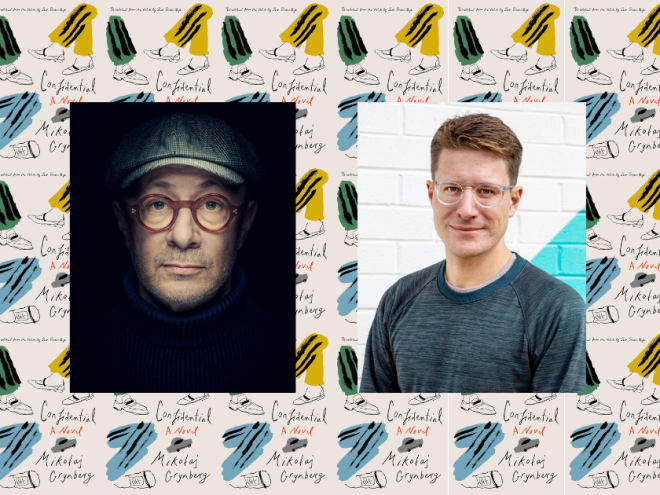Mikolaj Grynberg’s second work of fiction, Confidential: A Novel, is a strong parallel to his first, the acclaimed collection of short stories I’d Like to Say Sorry, but There’s No One to Say Sorry To. Both center the experiences of Jews in modern-day Poland, and both have sharp, spare prose.
But whereas I’d Like to Say Sorry covers the experiences of dozens of characters in the form of brief short stories, Confidential follows a single family. Representing three generations, this unnamed family is attempting to find a place for themselves in a historically — and, at times, presently — hostile homeland, while also trying to navigate the aftereffects of the Holocaust: how it shaped their attitudes toward their countrymen and their Jewishness; how it alienated them from themselves and their families; and how it instilled in them certain emotional responses — such as an inability to express sadness, or a sharp internal alarm that goes off whenever someone is a minute late — that don’t serve them.
Secrecy about one’s Jewishness is a central theme in I’d Like to Say Sorry, as it is in Confidential. None of the characters are given names — they’re described only in relation to one another (i.e., brother, mother, father, etc.), as if, were their names to be revealed, there’d be consequences — a clear homage to Jews hiding their Jewish identity to protect themselves during the Holocaust. Yet, given that the story is set in the modern age, that same fear, that intensity is no longer present. The narrator notes that other Jewish Poles are adopting the names that they had before the war, and finally, after long searching for it, the mother of the family also takes back the name of her biological father, a Jewish man who was killed in the war. It’s an indication that Poland’s Jews are recovering, coming back to the surface — and yet, the anonymity remains, as if the characters are telling the reader, We’re safer, but not safe.
The novel’s withholding of key information — such as names, times, and places — can sometimes make for a bit of a laborious reading experience. Before they’re given their relationship titles (again: brother, mother, etc.), characters are often introduced simply as “he” or “she.” Given how short the novel is, and given its preference for sporadic vignettes over a traditional chronological timeline, some readers may experience confusion as the story moves along. Conversely, though, this also speaks to the novel’s central themes: being lost, out of time and out of place, always searching for direction.
Grynberg’s dark humor adds some levity to these otherwise painful scenes. Words are misremembered or mispronounced — in one instance, “metastasized” is instead “meta-sized” — and lessons given often end up backfiring on the giver. This makes the story seem playful at times, as if what’s happening really isn’t all that serious. It’s a delicate balance to strike — offering lightness in such a heavy story — but it’s demonstrated effectively here.
The New Press and Sean Gasper Bye, the novel’s translator, have done a service in presenting this book to an English-reading market. One can only hope that, as Grynberg continues to write, we’ll be able to keep reading his work.
Benjamin Selesnick is a psychotherapist in New Jersey. His writing has appeared in Barely South Review, Lunch Ticket, Tel Aviv Review of Books, and other publications. He holds an MFA in fiction from Rutgers University-Newark.





